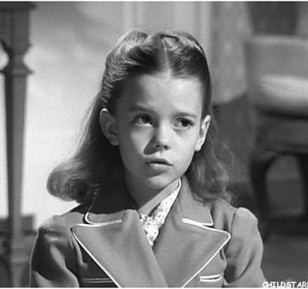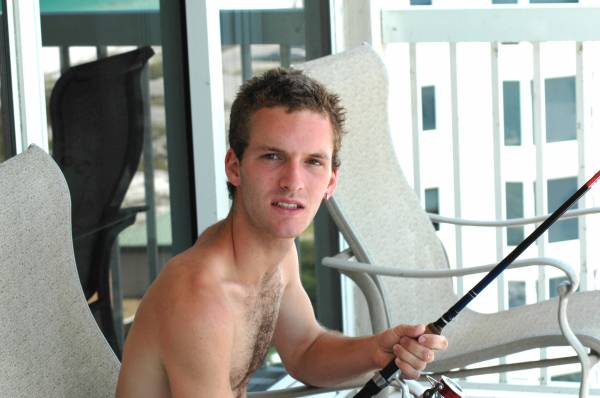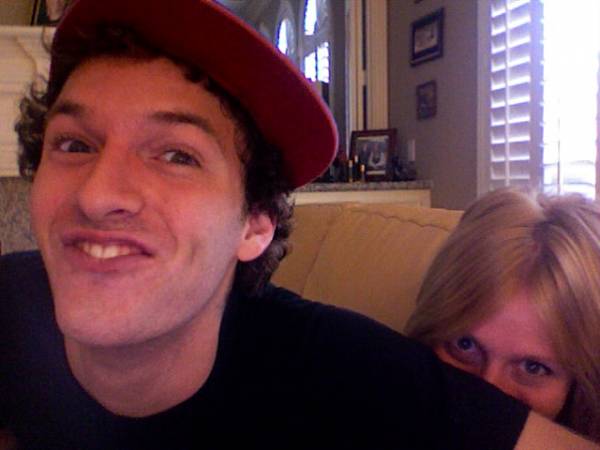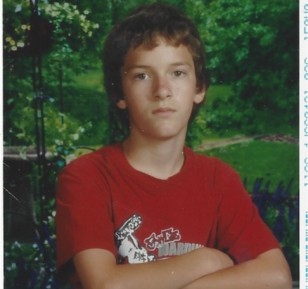Enjoy the second and final segment of the Natalie Wood interview.
Me: Okay. So what did you believe about death and the afterlife before you crossed over?
Natalie: I didn’t have much time to think about it in the ocean—
Jamie: So, it’s not a bay.
Me: I mean what did you believe when you were growing up, not just right before your death. Did you believe in an afterlife?
Natalie: I did. When I was younger, we moved a lot. I experienced death of someone close to me at a very young age.
Jamie: She’s talking about a family member—
Me: So it made you wonder about death and the afterlife, I guess?
Natalie: Yes. It’s not like we got together and prayed together, but there was this understanding that there was something greater that guides us and helps us; there’s a reason for everything. I remember my mother really instilling that into me—there was a reason for everything.
Me: Now, when you crossed over, did any of your beliefs change?
Natalie: A lot changed.
Jamie (choking up): Aw, she’s crying a little bit. There are tears on her face.
Erik (sweetly, to Natalie): It’s okay.
Me: Aw.
(Pause)
Jamie: Wow, she keeps her composure, wipes her face with her fingers. There’s no hankie.
Natalie: I remember what changed in me after death was I didn’t know what burden I had accepted from my family. I didn’t know how much I was carrying and how many people I was taking care of. I was made to be a warrior as a child, and I wasn’t told that was what was needed of me. It was a game that was taught to me. I don’t regret it; I just finally got to feel what it was like to feel innocent after I died.
Me: Ah! And you let go of the burden.
Natalie: Yes.
Me: What was your actual transition like for you? Was it peaceful?
Natalie: I was fighting every step of the way. I did everything to stay alive. It was not—I couldn’t believe it was happening—could not believe this was going to be the end of my life.
Jamie: She just kind of takes a sigh.
Natalie: I remember being so frustrated by how this was what was going to be in the newspaper.
Me: Yeah.
Natalie: My mother taught me whatever I did, wherever I was, I was being watched. She did that to me at a very young age, and that is what I thought of, and that alone made me mad that this was what I was thinking about at that time—as I was dying.
Me: Oh, god.
Natalie: I couldn’t get away from myself, and the beauty of death is understanding the belief I had that someone was watching over us, that destiny was occurring in the good and the bad—that all was true and the rest of it just melted away. The whole life after life is very simple. It’s not complicated. We struggle so hard to put imagery to things that don’t need images and to define emotions instead of feeling them. That’s what people are missing.
Me: Yeah. So you passed on—I guess you eventually just gave in?
Natalie: Yes. I surrendered. That’s the word I kept hearing: “Surrender, surrender.”
Jamie: So she actually drowned.
Me: Yeah. I think she was wearing a fur coat or something, so that probably didn’t help.
Jamie: The only thing she shows me that she feels is that her head was hurting so bad. Her head was hit kind of up in the front near the temple. So, it was not the clothes she struggled with—it was her head hurting so bad and the water was coming up over her eyes.
Me: Can you describe your surroundings and thoughts after you realized you had crossed over?
Natalie: It was pure light, white light.
(Long pause)
Me: Okay. What thoughts did you have?
Natalie: It felt like it was only for seconds, because so much occurred afterwards. The white light turned into a space, then into people being in the space with me talking to me, comforting me. I didn’t know why they were so concerned for me. I didn’t really realize this was death; it felt more like a dream. I thought death would be more elusive, not so real. Family members, friends, other actors came to me.
(Pause)
Me: Do you—
Natalie (interrupting): My biggest regret? I didn’t get to tell the world what XXXX was really like.
Me: Well, you have a chance now, and you’ve done that; you said he had a violent, darker side. I can see it in his face. I can really get a sense of who he was. Do you think it was your destiny to die when and how you did, Natalie?
Natalie: When I look back and when I hear from the people who surround me know, they say it was a blessing that I left then, because I wasn’t going to be strong enough to leave that XXXX. And other things—worse things—would have happened to me. These would have been more horrible than the ease of death.
Jamie: Oh, my god.
Me: Aw. Wow.
(Pause)
Me: Can you describe your afterlife now?
Natalie (without pausing): Beautiful! Beautiful!
Me: Yeah, tell me a little more about that. And what do you do there? Do you have a life’s work there?
Natalie: It’s comforting, empowering. I love to help victims of abuse-male and female.
Me: Those who have crossed over or people who are still living?
Natalie: Still living.
Me: Okay. Give me some visuals for your afterlife.
Natalie: We have concerts and meeting halls and libraries and work force rooms where like-minded entities, like-minded spirits meet, because we’re trying to reach similar outcomes. Communication here is above all else. Emotional support comes from everyone, and we’re all on the same page. It’s such a good feeling.
Me: How wonderful! What about where you stay? What does that look like? Do you have a house?
Natalie: Oh, that’s unnecessary.
Me: Oh, that’s right. So, what insights have you gained since you’ve been there? I’m sure your perspective has changed, right?
Natalie: Yes. I think we touched on some of it. If anything, what has changed is a better understanding than what I had on earth. It was much too simple before the idea that everything was done for a reason.
Me: What were you here to learn and teach?
Natalie: Even though I was in the public eye for so long, I was a very private person. I had the means to protect myself. I really feel I was here on Earth to learn how to create security and a family life, to take care of other people intimately and not do it for some grand scheme.
Me: Do you think you accomplished that?
Natalie: I did my best, but I don’t think I achieved it fully. I did my best.
Me: Okay, What were you here to teach?
Natalie shakes her head no.
Erik (to Natalie): What does that mean? Does that mean you don’t think you were here to help even one person if not thousands or millions?
(Pause)
Me: Nope?
Jamie: Really. We’re just sitting here, and it’s very quiet in the room.
Me: So, you weren’t here to teach anything?
Natalie: It’s personal.
Me: Oh! Okay. You’re still quite private. We’ll certainly respect that.
Natalie: Yes. Thank you.
Me: Okay. So, what do you think was your biggest accomplishment?
Natalie: The birth of my children.
Me: Aw, that’s good. Has your sense of accomplishment changed since your transition?
Natalie: No, no!
Me: Aw. Can you share a past life that you believe most influenced your last one?
Natalie: It was no different than the life I lived now. I was four years old when my father died. My mother sent me out in the cold to go to the next plot of land, which felt like miles away. There were no cars—
Jamie: Do you know what year it is?
Natalie: In the 1300s, Ireland. I walked down in the cold—wet snow—and asked the neighbors if I could be hired to work to earn any kind of money to give back to the family. I was a little boy. So, at four, I became the head of the household.
Me: Oh, gosh.
Natalie: My mother drove everything. “You need to do this for us. You don’t get to do what you want to do. You have to do this for the family.”
Me: Yeah.
Natalie: I wanted so badly to run away. I was lucky enough that at age nine, my mother died. By then, I was extremely independent. I had a little sister and older one both of whom I continued to care for. We moved away to live by the ocean and made a life for ourselves and survived, but we were very poor.
Me: So, it was a happy life in the end?
Natalie: Yes.
Me: Okay. Do you have anything else you’d like to share with the world, Natalie?
Natalie: Don’t listen to what people say. Look in their eyes and demand the truth.
Me: Oh, yes! How about you, Erik? Would you like to ask Ms. Natalie?
Erik: You miss acting?
Natalie: No. I’m still a great storyteller where I am, and I’m able to perform. That will continue to be a part of who I am, but at least now I’m doing it for my own joy.
Me: Aw, that’s good. Well, thank you so much, Natalie, for coming and sharing your story. Is it okay if we put this out there?
Natalie: I give you permission to share this with whomever. For once, I have the opportunity to not hide everything.
Me: Okay, We’ll do our best, Sweetie. Thank you.
Natalie: Thank you.
Want to listen to yesterday’s small group channeling conference call? Click here:




